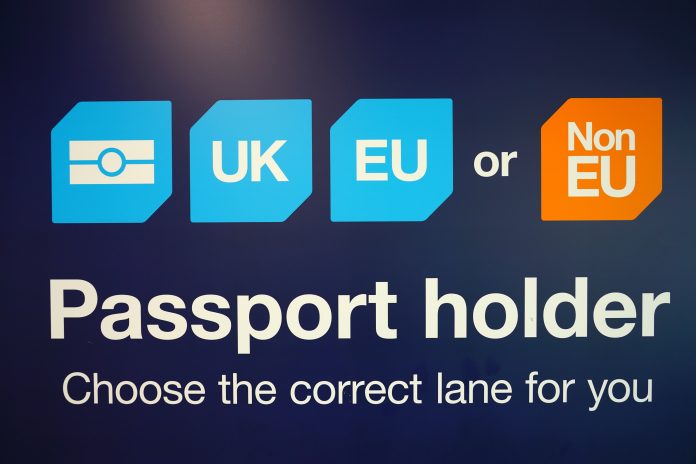Details have emerged on the UK’s post-Brexit “points-based system” visas. The Tier 4 visa category for students will be replaced by the “Student Route”. The current Student Visitor visa will disappear, with summer schools accessible via a visitor visa which EU nationals will be able to obtain at the point of entry.
The transition period, following the UK leaving the EU, ends on 1 January 2021, after which free movement of EU nationals to the UK ends. EU nationals will become “low-risk” non-visa nationals like Japanese or Brazilians, able to turn up at a port, airport or on Eurostar and get a six-month visitor visa stamp in their passport on arrival, allowing them to do a short course or summer school.
Pat Saini, head of immigration and partner at law firm Pennington Marches Cooper, briefed agents and language schools at the English UK Summit, shortly after the government announcement, on 10 September.
While welcoming the new “low risk” option, Saini warned that granting visas at the border is at the discretion of immigration officers and, historically, young people have made up the biggest category of entry refusals. Summer school students should ensure they’re carrying a letter from their school, the lawyer advised.
The existing “short-term study visa,” lasting for six to 11 months, will continue, and will now also be required for EU nationals. Students on this visa are not allowed to switch courses or do any work – including internships.
For courses of over 11 months, the Student Route visa replaced the old Tier 4 on 5 October. From 1 January, new students from the EU will need a Student Route visa. Saini said it will become easier to switch courses, and – as before – 20 hours a week of paid work will be allowed for university students (although, as we report on this page, advice on work rights from the UK government webpages remains confusing).
There will also be a “simplified” application system of “entry clearance” for Student Route visas and for short-term study visas for EU nationals, based on the EU Settled Status app. Technical glitches with the app, however, are already legendary.
It seems that it is also no longer possible under the new rules for EU nationals to come to the UK for a “high school year” in state schools. Some Erasmus+ work experience or internship schemes that bring EU nationals to the UK are now apparently closed, too. We await detail on the fate of current Tier 5 internship and au pair visas.
There is also some liberalisation of the former Tier 2 work visa, now known as the “Skilled Worker” route. While up to now these have required education at Level 6 (a degree), this has now dropped to a Level 3, university entry level. The cap on the number of work visas issued each year has also been scrapped.
Can those in the UK on work visas also study part-time, a potential market for the UK’s ELT industry? Saini told the Gazette that they currently can, “so long as it does not impact their employment.”
UK work rights maze
Can students work on the new Student Route visa? The government’s latest advice to students is puzzling.
On 18 October, www.gov.uk/student-visa the web page stated, “You may be able to work — how much depends on what you’re studying and whether you’re working in or out of term-time.” It goes on to say that, “If your application is successful, you’ll be told what you can and cannot do on a Student visa.” The cost of an application is £348.
Immigration lawyer Pat Saini told attendees at the English UK Summit (see article on this page) that those on the Student Route visa will be able to work up to 20 hours a week during term time, and longer during the holidays if they were in Higher Education. Those attending a Further Education college or language school cannot work.
The Gazette emailed the Home Office, the ministry responsible for immigration, to check whether work rights for a Student Route visa will depend on the type of institution where they were studying or what they were studying.
A press officer replied, telling us to phone the Home Office press office. When we did so, another press officer told us to send an email. As of going to press, we have not received an answer.
Meanwhile, lawyer Pat Saini sent us a link to the current official guidance, showing that some students in institutions in higher education do have work rights.
We have passed this guidance on to the Home Office.





